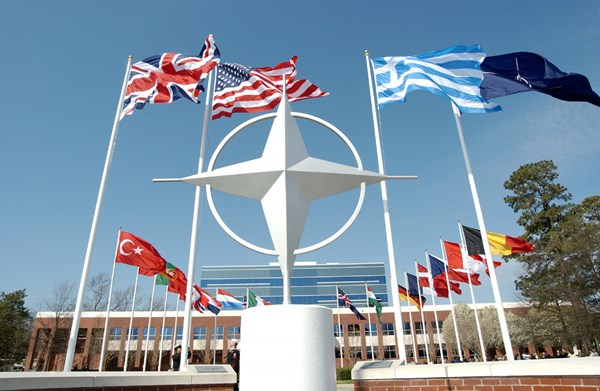NATO to maintain $50 billion in Ukraine military aid this year
By the end of this year, the value of military aid provided by NATO countries to Ukraine to defend against Russian aggression will total roughly $50 billion, matching last year.
Since January, alliance members have already allocated $33 billion for this purpose, said NATO Military Committee Chairman Giuseppe Cavo Dragone in an interview with Italian daily Corriere della Sera.
Asked about next steps as hopes for peace talks fade, Cavo Dragone said: “We intend to continue military assistance and even increase it. It is now clear that Ukrainians are seeking dialogue, but the Russians do not want it and are stalling.”
“I hope sanctions will be tightened to increase internal pressure against Russian President Vladimir Putin. Our hope is to enable Ukraine to negotiate from a position of strength,” he added.
Cavo Dragone also noted that to date Ukraine has received or agreed on $1.5 billion in military aid through the PURL program.
Under this mechanism, allies allocate funds to buy U.S. weapons for Kyiv from Ukraine’s Prioritised Ukraine Requirements List.
On August 13, Germany said it would finance a $500 million package for Kyiv through this program.
A day later, Ukrainian President Volodymyr Zelensky said the Netherlands and - jointly - Denmark, Norway and Sweden would fund similar $500 million packages.
However, in his Corriere interview, Cavo Dragone said that with Denmark and Sweden, it was Finland - not Norway - that took part in Northern Europe’s PURL package.
He said the funds will go toward missile and counter-drone defenses, as well as ammunition of various calibers, in line with Kyiv’s priorities. “The military equipment is distributed through NATO channels based in Germany, which has long delivered weapons provided bilaterally by individual countries,” he explained.
On possible NATO member participation in a peacekeeping mission in Ukraine - an idea Russia strongly opposes - Cavo Dragone said such questions “are part of international politics and negotiations with Moscow.”
“But within NATO, we absolutely have not discussed it - not even mentioned it,” he said.
Pressed on whether the alliance had raised the issue of ground contingents, he replied: “By no means; it’s at least premature. We know the issue has been broached by individual countries, perhaps bilaterally. But I repeat, it remains in an embryonic state.”
A mission would first require clarity on key questions - “Who decides whether the Russians or the Ukrainians violated the agreements? Who crafts the rules of engagement? What territory must be secured? Should soldiers only observe or also protect - and with what weapons?” He concluded: “Everything is open. With one fixed point: NATO remains committed to defending, first and foremost, the citizens of its member states.”
